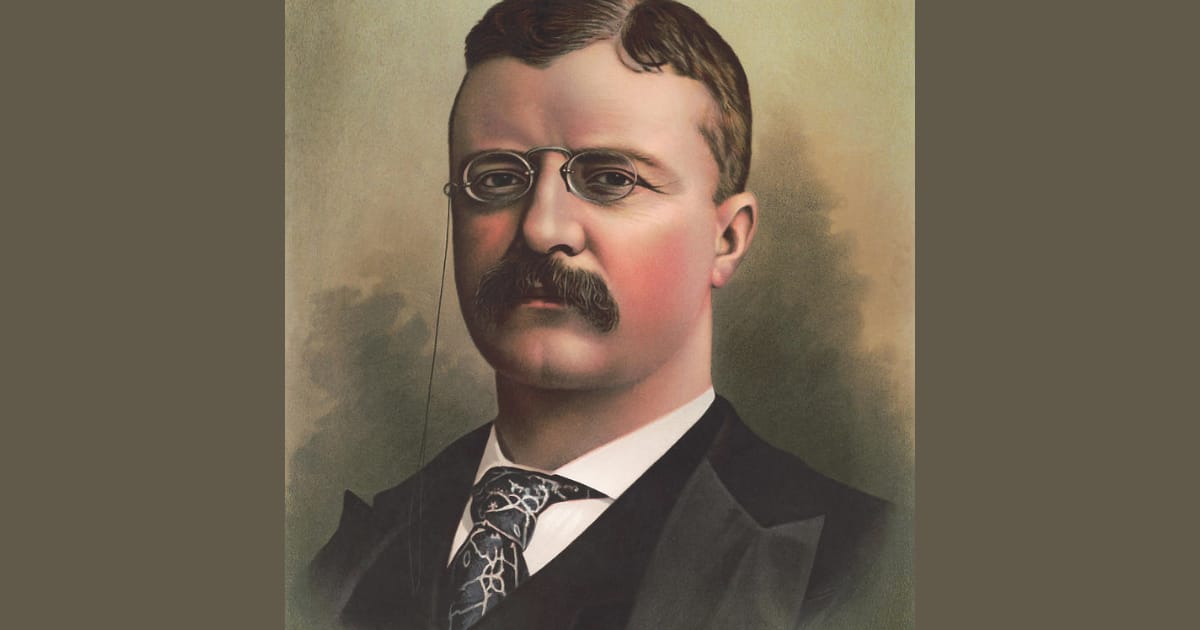- The Lake Street Journal
- Posts
- LSJ - Everything But the Principles
LSJ - Everything But the Principles
Getting things done takes compromise.

Hi Everyone,
Happy Friday! Thanks for spending part of it reading The Lake Street Journal.
This week we’re talking about Teddy Roosevelt’s compromise, luck, and deep dives. Let's get into it.
Everything But the Principles
Teddy Roosevelt began his term as Governor of New York with a problem.
He promised voters an independent administration, free of political machine influence, but the state was basically controlled by a man named Senator Platt.
Luckily, Roosevelt was able to thread a political needle from the first sign of trouble.
The state needed a new Superintendent of Public Works, and Teddy was determined to make a selection. But instead, Platt picked a candidate, named him, and handed Teddy a telegram of the man's acceptance.
Old TR had promised an independent administration, and this was anything but independent. He drew his line in the sand and told Platt his man wouldn't be getting the job. Platt was furious, but Teddy was steadfast.
Then Teddy tried to appoint someone, but man after man declined. All the candidates knew without Platt's blessing, they wouldn't be confirmed by the Senate.
Finally, Teddy gave Platt a list of four names—names of people Teddy selected—and let Platt choose. Platt picked one of the four, and the man accepted and was confirmed.
As Edmund Morris wrote in The Rise of Theodore Roosevelt, "Boss and Governor could congratulate themselves on making a selection that the other approved of. Pride was satisfied, yet there was compromise on both sides...For the rest of his term Roosevelt would follow this technique of submitting preselected lists to the organization, allowing Senator Platt to make the final choice."
Great leaders find a way to get things done through compromise. They compromise on everything but their principles.
David McCullough is one of my favorite historians. He spent decades studying history and writing thousands of pages on history's largest figures and events. Through that time, effort, and expertise, he arrived at an interesting theory that I think is pretty useful: luck plays a huge role in the outcomes of history.
From the way the wind was blowing during a Revolutionary War battle to the specific circumstances that led Wilbur Wright to become interested in aviation, had these tiny events happened differently, the world as we know it could be unrecognizable.
So why is this useful?
It's reassuring when we do everything in our control and don't get the outcome we wanted. And it's humbling when we achieve great success and want to believe it's entirely due to our effort.
If I'm objective about the big victories in my life, I have to admit luck played a role. I'm not talking luck like winning the lottery—more luck in the sense of hitting a good golf shot and then getting a great bounce. But it was luck nonetheless.
If this idea resonates, watch the speech I linked above. It's McCullough delivering a commencement address talking about the role of luck in history. And then check out this piece where I've written about the same idea.
Often, when people say, "I've done my research," they've done nothing of the sort.
If you're buying a new toaster oven or trying to find some activities to round out your vacation itinerary, then sure, the Google AI summary or Wikipedia page might be sufficient. But if you're trying to really understand a topic—a person, a company, a style of music or art, a historical event—you need to go insanely deep.
I'm talking deep to a level that most normal people would think is insane.
That's what Ryan Holiday writes about in this article.
When he was writing his most recent book, he was doing a section on Lincoln, so he did a deep dive. That deep dive included reading—and sometimes re-reading—over 30 books on Lincoln. It included interviewing Lincoln experts, taking multiple trips to the Lincoln Memorial, and reading Lincoln's original writings, letters, and speeches.
It sounds insane. It definitely took hundreds if not a thousand hours.
But that's how a deep dive works. That's how knowledge, and more importantly, wisdom, is earned. There's no shortcut, and that's why wisdom is so valuable.
So here's something to think about this weekend: have you ever done a deep dive? If not, where would you like to start?
Workout of the Week
I'm running a half marathon tomorrow. After three plus months of running, I'm pretty excited to do a workout like this one.
"Pain Pyramid"
16 minute AMRAP
10 devil's press (35s)
20 reverse db lunges (35s)
10 pull-ups
Anything north of four rounds on this one is pretty solid.
Quote of the Week
"You can ignore reality. You cannot ignore the consequences of ignoring reality." - Konstantin Kisin
What did you think of this week's newsletter? |
Have a question or a comment? Respond to this email.
Talk soon,
Joe